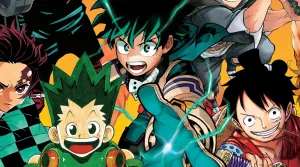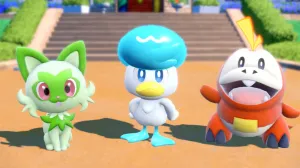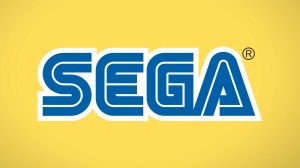Wizards of the Coast has released a new statement about their new Open Gaming License, stating their intent to remove some of the most controversial components of the proposed new legal framework. Today, Wizards of the Coast issued a new statement about their plans for the Open Gaming License (OGL), which provides a legal framework that allows third-party publishers to make Dungeons & Dragons compatible material. The statement comes a full week after leaked drafts of the OGL were published online, which revealed a stifling royalty structure for larger publishers and a controversial license back language granting Wizards a perpetual license to use material published under the new OGL.
Videos by ComicBook.com
While Wizards of the Coast did not release a new OGL for the public to view, it did confirm the legitimacy of the leaked drafts in a statement released today. While it defended those drafts as documents intended for feedback, Wizards also stated that the final version of the new OGL would not contain several of the most controversial aspects of the earlier drafts, including a royalty structure or license back language.
“The next OGL will contain the provisions that allow us to protect and cultivate the inclusive environment we are trying to build and specify that it covers only content for TTRPGs,” Wizards wrote. “That means that other expressions, such as educational and charitable campaigns, livestreams, cosplay, VTT-uses, etc., will remain unaffected by any OGL update. Content already released under 1.0a will also remain unaffected.”
“What it will not contain is any royalty structure,” Wizards continued. “It also will not include the license back provision that some people were afraid was a means for us to steal work. That thought never crossed our minds. Under any new OGL, you will own the content you create. We won’t. Any language we put down will be crystal clear and unequivocal on that point. The license back language was intended to protect us and our partners from creators who incorrectly allege that we steal their work simply because of coincidental similarities . As we continue to invest in the game that we love and move forward with partnerships in film, television, and digital games, that risk is simply too great to ignore. The new OGL will contain provisions to address that risk, but we will do it without a license back and without suggesting we have rights to the content you create. Your ideas and imagination are what makes this game special, and that belongs to you.”
The statement did not address whether the new OGL would attempt to “de-authorize” previous versions of the OGL. Wizards had previously told creators that they could release material under any version of the OGL, albeit using only System Reference Documents written for those OGLs. By attempting to de-authorize older versions of the OGL, creators would be forced to use the new OGL to make D&D-compatible material, locking them into whatever terms and conditions were in the new OGL. It also did not state whether Wizards reserved the right to make changes to this new OGL and what sort of timeframe those changes would be communicated to creators and publishers.
Originally released in 2000, the OGL helped grow D&D’s market share and turned it from the largest tabletop roleplaying game to a dominant game system that dwarfed all others. When Wizards of the Coast opted for a more restrictive Game System License when rolling out Dungeons & Dragons 4E, rival publishers such as Paizo continued to use the OGL to publish games such as Pathfinder that competed for market share during the early 2010s. Wizards of the Coast returned to the OGL with 5E (releasing a new System Reference Document for 5E), which helped grow the 5E marketplace to its current dominant status.
While rumors had swirled for months that Wizards of the Coast and its parent company Hasbro would try to make changes to the OGL, Wizards of the Coast sought to downplay changes to the OGL, although a framework for the changes noted that publisher who make more than $750,000 would pay a royalty fee. A leaked draft of the OGL 1.1 revealed that a royalty structure of 25% of revenue greater than $750,000, along with new language about Wizards having additional rights to material published under the OGL. Additionally, Wizards sought to “de-authorize” the previous OGLs, which undercut a long-held belief (promoted by Wizards in the past) that publishers could continue to use older versions of the OGL should a new OGL be released with unfavorable language.
The furor over the OGL has grown quickly, with many major publishers announcing plans to develop their own game systems and to stop publishing material under the OGL. Kobold Press and MCDM Productions are two well-known publishers who have publicly announced plans to work on their own bespoke game systems (MCDM has spoken publicly about plans for its own game system in the past, but the OGL announcement moved up their timeline) while a movement to create a system agnostic Open RPG License is also underway.
Wizards of the Coast is stressing that they were always planning to solicit public feedback before issuing the new OGL, leaked drafts indicated that there’d be a short timeframe for publishers to opt into the new agreement, which added urgency to the grassroots campaign protesting the changes. Obviously, the new OGL has still not been released yet and thus fans shouldn’t accept the statement as a definitive victory, but the statement indicates that Wizards of the Coast is capitulating on some of the most controversial aspects of their plans.








